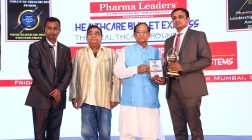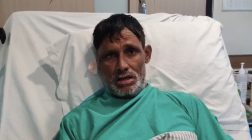Flouting ethics in Clinical Trials
Committee questions roles of ICMR, Drug Controller in the “intriguing” 2010 episode
.jpg)
Accusing the international organisation PATH (Programme for Appropriate Technology in Health) of exploiting with impunity the loopholes in the system during a trial of Human Papillomavirus (HPV) vaccines, a parliamentary panel has also questioned the roles of the Indian Council of Medical Research and the Drug Controller-General of India in the entire episode.
The issue pertains to trials conducted by two U.S.-based pharmaceutical companies through PATH on tribal school girls in Khammam district in Andhra Pradesh and Vadodara in Gujarat in 2010. The trials were stopped only after the matter received media attention following the death of seven girls.
In its report on “Alleged Irregularities in the Conduct of Studies using HPV Vaccines by PATH in India” presented to Parliament, the committee has said ICMR representatives apparently acted at the behest of PATH in promoting the interests of the vaccine manufacturers, and recommended that the Health Ministry review the activities of the functionaries of the Council involved in the PATH project
As for the DCGI, the approvals of clinical trials, marketing approval and import licences by the agency “appear to be irregular” and its role “in this entire matter should also be inquired into.”
The Department of Health Research/ICMR “have completely failed to perform their mandated role and responsibility as the apex body for medical research in the country. Rather, in their over-enthusiasm to act as a willing facilitator of the machinations of PATH, they have even transgressed into the domain of other agencies which deserves the strongest condemnation and strictest action against them.”
The committee failed to understand why the ICMR “took so much interest and initiative in this project when the safety, efficacy and introduction of vaccines in India are handled by the National Technical Advisory Group on Immunisation.”
How could the ICMR commit itself to supporting “the use of the HPV vaccine” in an MoU signed in 2007, even before it was approved for use in the country, which actually happened in 2008? The committee also questioned the ICMR’s decision to commit itself to promoting the drug for inclusion in the Universal Immunisation Programme before any independent study on its utility and rationale of inclusion in the UIP was undertaken.
Describing the entire matter as “very intriguing and fishy,” the committee said the choice of countries and population groups (India, Vietnam, Uganda and Peru); the monopolistic nature, at that point of time, of the product being pushed; the unlimited market potential and opportunities in the universal immunisation programmes of the respective countries “are all pointers to a well-planned scheme to commercially exploit a situation.”
Had PATH been successful in getting the HPV vaccine included in the universal immunisation programme of the countries concerned, windfall profits would have been generated for the manufacturer(s) by way of automatic sale, the committee said. It asked the government to take up the matter with these countries through diplomatic channels.
Flouting ethics
Drawing attention to gross violation of ethics during the conduct of trials, the committee members said that in Andhra Pradesh out of 9,543 consent forms, 1,948 had thumb impressions, while hostel wardens signed 2,763 others. In Gujarat, out of 6,217 forms, 3,944 had thumb impressions. The data revealed that a very large number of parents/guardians were illiterate and could not even write in their local language, Telugu or Gujarati.
It was shocking to find from one of the reports that out of 100 consent forms for Andhra Pradesh, project signatures of witnesses were missing in 69 forms. In many forms there were no dates. One particular person had signed seven forms. In fact, the legality of the State government directing headmasters of all private/government/ashram/schools to sign the consent forms on behalf of parents/guardians was highly questionable. The absence of photographs of parents/guardians/wardens on consent forms and of signatures of investigators, the fact that signatures of parents/guardians did not match with their names; and the date of vaccination being much earlier than the date of signature of parents/guardian in the consent forms spoke of grave irregularities, the report said.
The committee said PATH should be made accountable and the government should take appropriate steps in the matter, including legal action against it for breach of laws of the land and possible violations of laws of the country of its origin.
Describing this act of the PATH as a clear-cut violation of human rights and case of child abuse, the Committee has recommended that the National Human Rights Commission and the National Commission for Protection of Children Rights take up this matter. The National Commission for Women should also take suo motu cognisance of this case as all the poor and hapless subjects were female.
The Health Ministry should report the violations indulged in by PATH to the World Health Organisation and the United Nations Children’s Fund so as to ensure that appropriate remedial action was initiated worldwide, the committee said.










